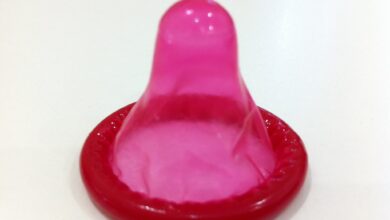Seven ways nurses can upgrade their skills to navigate healthcare environments

Nurses must expand and upgrade their skillset to successfully navigate the complexities of healthcare environments. In this era of rapid advances in healthcare technology, healthcare professionals are tasked with keeping abreast of ongoing changes and remaining informed of up-to-date research, evidence-based practice, and innovative nursing approaches.
With adequate skills, nurses can rise to the challenge of providing competent and comprehensive care in complex healthcare settings. To make sound decisions, they must deeply understand healthcare’s ethical and legal issues.
It is also essential for nurses to be continuously engaged in their growth and development, furthering their knowledge and refining their clinical and professional skills.
Why nurses need to expand and upgrade their skillset
Here are reasons why nurses should expand and upgrade their skillset to successfully navigate the complexities of healthcare environments.
Keep up with changing technology
Nurses must continue updating and expanding their skills to remain up to date with healthcare technology. Healthcare technology is ever-changing and enhancing, so nurses must keep up to date with these innovations to carry out their obligations proficiently. This encompasses using computer systems to preserve patient documents and sophisticated medical devices to observe patient vitals and diagnose diseases.
Practicing nurses should also comprehend the newest inventive treatments and medications physicians advocate and any further safety mandates that may be needed to prevent the spread of infectious diseases. By staying current with the latest technology, nurses can provide better patient care and ensure they utilize the best resources accessible.
Improve patient care
Enhancing patient care is one of the fundamental goals of any healthcare setting, and nurses serve a requisite part in delivering top-notch patient care.
As healthcare settings become ever more intricate, requiring nurses to be adept in the latest technologies, treatments, and procedures, expanding and modernizing their skillset is vital for successful patient outcomes.
By having the most current expertise and skillset, nurses will better comprehend the intricacies of the healthcare environment and be better outfitted to render the highest standard of patient care. Expanding and modernizing a nurse’s skillset is central to improving patient care in a complex healthcare setting.
Prepare for new roles
In today’s rapidly-transforming healthcare landscape, nurses must expand their skill set to prepare for new positions and successfully traverse the industry’s intricacies. Nurses must remain up-to-date with the most recent advances in healthcare technology, such as electronic health data, telehealth, patient gateways, and the newest evidence-based procedures and protocols.
As nurses gain a deeper insight into healthcare systems, they are better situated to take on more sophisticated roles, like becoming clinical nurse influencers or being held accountable for healthcare operations.
Furthermore, emerging trends in healthcare, such as value-based care, necessitate nurses to acquire supplemental knowledge and abilities to incorporate them into their practice resourcefully. Nurses can offer high-grade and cost-effective care in ever-evolving healthcare settings by exercising their acquired knowledge and technical understanding.
Maintain the nursing license
Maintaining licensure as a nurse is indispensable because it shows that the nurse has the appropriate capabilities, insight, and proficiencies to deliver patient care securely in a complex healthcare setting.
With a valid license, nurses can exercise nursing legitimately and avoid penalties, including potential job loss. As healthcare advances, nurses must expand their skill set to keep current with changing practices, procedures, and technology. It can include extra training and continued education programs. Keeping up to date with the most current advancements in nursing helps guarantee that nurses can provide quality patient care and comply with the highest standard of professional practice.
Enhancing one’s abilities also assists nurses in staying competitive in today’s dynamic employment market and may improve their odds of being employed and advanced within the organization.
Promote innovation
Promoting innovation in medicinal settings is fundamental for nurses to sail through the complexities of the quickly-evolving healthcare field. As healthcare organizations increasingly lean on high-tech advancements and proof-based practice, medical attendants should be capable of applying new technologies, protocols, systems, and medications.
Increasing skillsets through training and education can support nurses in remaining abreast of the latest medicinal advancements and bringing quality care to their patients. By gaining new abilities and adjusting to transformations in healthcare, medical attendants can give the ideal patient care.
Moreover, nurses knowledgeable in the most recent technologies are better prepared to exploit the productivity and adequacy of patient care, eventually bringing about better results. Strengthening and upgrading skillsets are critical for medical attendants to serve their patients better while keeping up a secure and encouraging workspace.
Increase patient safety
Enhancing patient safety is a crucial reason for nurses to broaden and develop their capabilities to effectively manage the complexities of healthcare settings. Nurses must remain informed on the most recent protocols and processes to abide by safety requirements in a consistently shifting and growing sector. It includes being aware of prospective risks, navigating technology, grasping the transitioning realm of patient care, and more. Nurses can provide better and safer patient care with diverse abilities.
Stay ahead of the competition
Nurses must stay ahead of the competition to successfully navigate healthcare settings’ complexities. This is because the healthcare sector is highly competitive and constantly shifting.
Therefore, nurses must stay up to date with the latest trends, evolutions, safety norms, and regulations to preserve their proficiency, stay relevant, and succeed. Additionally, expanding and enhancing their ability set also assists nurses to stay informed, capable, and on top of the ever-evolving healthcare landscape.
Moreover, as technology and medical advancements continue to shape the industry, nurses must proactively increase their expertise to remain up-to-date and timely. Doing so empowers nurses to stay competitive and utilize their faculties to deliver quality care and patient assistance.
Ultimately, nurses must remain consistent and upgrade their capacity to stay ahead of the competition and navigate the intricacies of healthcare settings.
Upgrading skills to navigate complex healthcare environments
Developing leadership skills
Nursing is an occupation that demands leadership abilities, as nurses are regularly called upon to be in charge of organizing and overseeing patient care. Nurses should take the initiative to assume leadership roles in their clinical environment to develop their leadership abilities.
Showing enthusiasm to take on the role of charge nurse, lead teams, and teach new nurses would be beneficial. Pursuing leadership training or qualifications and participating in mentorship schemes can also be helpful.
In addition, nurses may choose to have either an internal or external mentor to help with professional decisions, minimize mistakes, and demonstrate enhanced performance. Nurses with solid leadership abilities can delegate assignments efficiently, make informed choices, and establish a pleasant workplace for healthcare professionals.
Excel in higher education
Continuing education and advanced degrees can substantially improve nursing capabilities and optimize patient care. Advanced knowledge and skills are provided to nurses through higher education.
It enables them to keep abreast of evidence-based practice and supply improved care. Nurses with advanced education are more likely to demonstrate evidence-based practice, critical analysis, and leadership roles, enhancing patient care.
To excel in higher education, nurses should enroll in accredited nursing programs offering advanced degrees. Nursing professionals can take advantage of online programs offered by universities and colleges, which provide a cost-effective and convenient way to continue working while progressing to higher education.
Acquire technical competency
Nurses must keep abreast of changing medical technology to provide adequate patient care. Technical proficiency involves utilizing medical technology, carrying out procedures, and effectively utilizing electronic health records systems.
Nurses with advanced skills and knowledge in the technical aspects of nursing are more likely to render successful patient care and produce favorable results.
Those possessing superior technical knowledge, including being highly proficient in EHRs, can reduce the occurrence of mistakes and unsafe events related to administering medications.
Nurses can improve their technical skills by attending seminars and engaging in simulations. Through online classes, they can also pursue instruction on new developments in healthcare, including EHR (electronic health records), telehealth, and remote patient monitoring.
A good understanding of healthcare technologies can aid nurses in making their workflow more efficient, conducting assessments of patients more effectively, and coordinating care better.
Stay updated with evidence-based practice
Evidence-based practice combines clinical experience with the most up-to-date research and patient wishes to make informed decisions about patient care.
Nurses must habitually read new research from respected journals, attend workshops, and undertake continuing education programs to remain apprised of developments.
They can become members of specialized nursing organizations which offer access to resources, possibilities for conversation, and chances to connect with other nurses keen on evidence-based practice.
Incorporating evidence-based practice into your work enables you to make decisions based on current research and customize your treatment approaches to each patient’s unique characteristics. This improves the standard of care and fosters an atmosphere of excellence in your healthcare environment.
By being aware of the latest studies regarding distraction strategies during unpleasant procedures for children, you can utilize these tactics to help soothe discomfort and dread in your young patients while working.
Enhance communication skills
Improving your communication abilities can majorly affect patient treatment, as communication is the foundation of nursing practice. Talking to patients in a clear and understanding manner in healthcare is linked to greater patient satisfaction, better following of treatment directives, and improved medical outcomes.
As a nurse, you can strengthen your communication abilities by listening attentively to your patients, clearly conveying your messages and exhibiting care and understanding. Research suggests that when patients and healthcare providers take the time to listen to one another, they are more likely to come to a mutual agreement. Patients are more satisfied with their care and report better health outcomes.
Effective communication helps to build trust, increases understanding, and encourages patient-centered care which, in turn, improves patient outcomes. In addition, honing your communication ability can help you to work productively with colleagues from multiple disciplines, like doctors, druggists, and social workers.
Nursing tools such as communication are used between patients and medical teams. Spring Arbor University’s online Master of Science in Nursing (MSN) programs teach communication and more, helping dedicated healthcare professionals answer the call to serve others and gain better communication skills. Whether entering patient care for the first time or advancing to the next level, every nurse needs a toolbox full of essential skills and knowledge.
Cultivate cultural competence
Nurses must have a strong understanding of different cultures to offer equal and inclusive medical support to people from various backgrounds. It is necessary to be aware of and respect patients’ cultural, social, and religious values and modify care to suit them and cultivate cultural competence. One must also recognize and challenge any personal cultural biases and prejudices.
Patients who receive care that considers their cultural background tend to be more content with their medical care, follow treatment plans more effectively, and ultimately enjoy better health. Nursing care sensitive to and respecting diverse cultural backgrounds can help foster positive doctor-patient relationships, enhance communication, and increase patient satisfaction.
Practice self-care
Nurses must prioritize their well-being to provide the highest quality care for their patients. It requires focusing on stress management, achieving a positive work-life balance, and being mindful of their emotions and thoughts. Nurses can improve their well-being by engaging in physical activity, being mindful of the present moment, and taking up hobbies that allow them to de-stress and refresh.
In order to attend to patients with the necessary attention and concentration, nurses must make sure to get seven to eight hours of sleep every night. Nurses should find time for a rest break during their shift and stay in contact with their loved ones, as they can provide comfort and assistance during difficult times.
The importance of expanding skillsets
Expanding and honing their capabilities is critical for nurses to smoothly navigate the complex healthcare landscape. Nurses need the newest knowledge and abilities in continually shifting healthcare facilities to render top-notch and thorough patient attention.
Nurses can refine their abilities by enrolling in courses related to their present scope of care. They can also boost their professional development by pursuing continuing education, building relationships, and scrutinizing professional literature. Moreover, nurses must stay updated with the changing trends and regulations in the healthcare space to back their professional growth.






